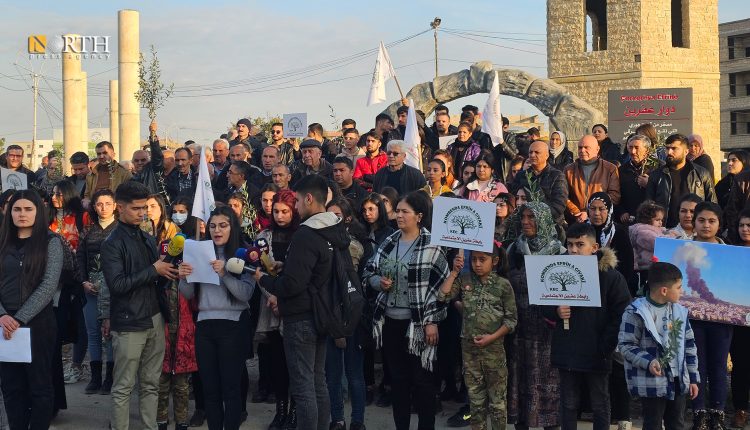NGO calls for ending Turkish occupation of Syria’s Afrin
QAMISHLI, Syria (North Press) – On Saturday, the Afrin Social Association called on civil society organizations, human rights organizations, and the international community to end the Turkish occupation of the Afrin region, northwestern Syria, secure a safe return for its displaced original inhabitants, remove all outsiders, and fight anything that promotes demographic change.
The Afrin Social Association was established in the city of Qamishli, northeastern Syria, in November 2021 to help Afrin IDPs meet their requirements.
This came in a statement by the association on the 6th anniversary of the beginning of the Turkish military operation against Afrin.
On Jan. 20, 2018, Turkish forces, along with armed factions of the Turkish-backed Syrian National Army (SNA), launched a military operation dubbed “Olive Branch” against Afrin under the pretext of protecting Turkey’s national security. The operation led to fierce clashes with the Kurdish People’s Protection Units (YPG) and lasted for two months.
The operation ended with the occupation of Afrin, the killing and injury of thousands, and the displacement of about 300,000 of the original Kurdish inhabitants. As for those who chose to remain in their homeland and not to flee, they have been subjected to widespread human rights violations.
The association voiced concerns over the danger of settlements built by Turkey in Afrin on the region’s demography and identity.
It emphasized that Turkey seeks, through the establishment of settlements, to change the region’s demography, disregarding all humanitarian and ethical values, as well as international norms and laws.
The association also called for ending the Turkification policy evident in the imposition of the Turkish language and culture on the region to erase everything related to the original existence of the Kurds.
The Afrin Social Association further added that the number of settlements built by organizations supported by Turkey has exceeded 40, distributed in villages and towns of Afrin.
By Nalin Ali

